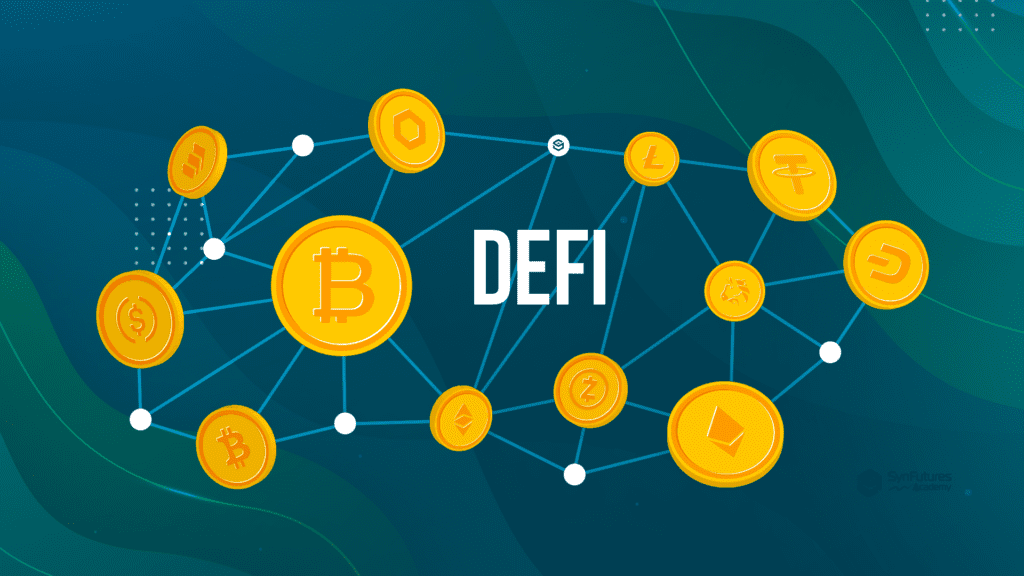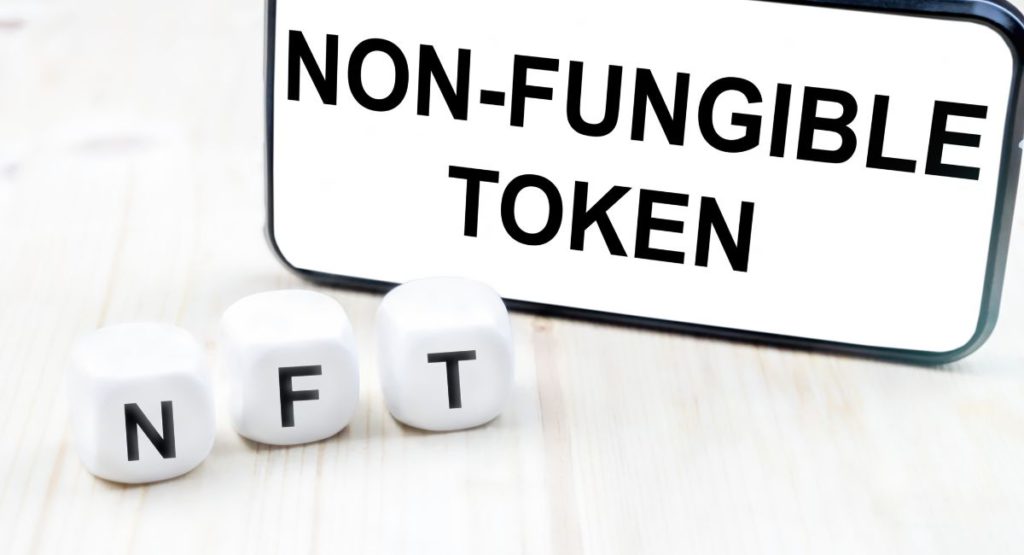Top 10 Transformative Blockchain Innovations Of The Decade And Their Impacts

Blockchain technology has come a long way since its inception with Bitcoin in 2009. Over the years, it has evolved into a versatile platform for various applications beyond cryptocurrencies. In this article, we’ll explore the top 10 blockchain innovations of the past decade that have the potential to reshape industries and redefine the way we interact with digital assets, information, and more.
Top 10 Blockchain innovations of all time:
1. Smart Contracts

Smart contracts are self-executing contracts with the terms of the agreement directly written into code. They enable trustless, automated transactions, eliminating the need for intermediaries. Ethereum, with its Turing-complete scripting language, has been a pioneer in smart contract technology. These contracts are now used in various domains, from finance and insurance to real estate and supply chain management.
2. DeFi (Decentralized Finance)

Decentralized Finance, or DeFi, represents a groundbreaking blockchain innovation that has revolutionized the financial industry. It includes lending, borrowing, trading, and earning interest on digital assets without traditional financial intermediaries. Projects like Aave, Compound, and MakerDAO have paved the way for a decentralized financial ecosystem.
3. NFTs (Non-Fungible Tokens)

Non-fungible tokens are unique digital assets representing ownership of a specific item, artwork, collectible, or any digital or physical object. NFTs have gained immense popularity, and their potential applications extend to art, gaming, virtual real estate, and intellectual property rights. The sale of Beeple’s digital artwork for $69 million is just one example of the NFT boom.
4. Cross-Chain Compatibility
Interoperability is a key blockchain innovation, enabling different blockchains to communicate and share data. Projects like Polkadot and Cosmos have introduced cross-chain solutions, allowing applications to function seamlessly across multiple blockchains. This innovation enhances scalability, flexibility, and collaboration in the blockchain ecosystem.
5. Blockchain Identity
Blockchain-based identity solutions are providing a secure and decentralized way to manage personal and digital identities. Individuals can have more control over their personal information, reducing the risk of identity theft and data breaches. Sovrin and SelfKey are among the pioneers in this space.
6. Supply Chain Management

Blockchain is revolutionizing supply chain management by providing transparent and immutable records of products’ journey from origin to consumers. Companies like IBM and VeChain are leading the way in this innovation, ensuring authenticity and traceability of products, reducing fraud, and improving efficiency.
7. Healthcare Data Management

Managing healthcare data securely and ensuring privacy is a critical concern. Blockchain innovations like MedRec and HealthVerity are offering solutions to securely store and share healthcare information, allowing patients to control access to their data while maintaining anonymity.
8. Voting Systems

Blockchain-based voting systems promise secure, transparent, and tamper-resistant elections. Innovations like Voatz and Follow My Vote aim to eliminate fraud and increase trust in the electoral process by leveraging blockchain’s transparency and security.
9. Decentralized Autonomous Organizations (DAOs)

Decentralized Autonomous Organizations, or DAOs, are organizations run by code and governed by token holders. They enable decentralized decision-making and management of assets. The infamous “The DAO” and newer projects like MakerDAO and Aave have demonstrated the potential and challenges of this innovation.
10. Cross-Border Payments

Traditional cross-border payments are slow, costly, and lack transparency. Blockchain-based solutions, such as Ripple’s XRP and Stellar’s Lumens, aim to make international transactions faster, cheaper, and more transparent, potentially disrupting the traditional financial system.
In conclusion, blockchain innovations have come a long way since Bitcoin’s inception. These technologies are shaping a decentralized and more efficient future, disrupting traditional industries, and offering new opportunities for businesses and individuals alike. As blockchain technology continues to evolve, we can expect even more exciting innovations on the horizon, transforming the way we live, work, and transact in the digital age.
Also, read – Top 10 Ethereum Blockchain Innovations Driving Adoption And Growth
How did these blockchain innovations change the business world?
10. Cross-Border PaymentsImpact: Cross-border payment solutions based on blockchain technology offer faster, cheaper, and more transparent international transactions. This innovation can significantly reduce costs for businesses involved in international trade and cross-border transactions.
In summary, blockchain innovations have had a transformative impact on the business world. They have improved operational efficiency, reduced costs, increased transparency, and introduced new revenue streams. Businesses that adopt these innovations are better positioned to thrive in the evolving digital landscape, disrupt traditional industries, and create innovative solutions for their customers. Blockchain technology continues to open up new possibilities, and its influence on the business world is likely to grow in the coming years.
The blockchain space is continually evolving, and several promising innovations are on the horizon. Here are some other blockchain innovations that are worth keeping an eye on:
- Web 3.0 and Decentralized Internet: The next iteration of the internet, known as Web 3.0, aims to decentralize the web. Projects like Polkadot and the Interledger Protocol are working to create a more open and decentralized internet, where users have greater control over their data and identities.
- Layer 2 Scaling Solutions: To address blockchain scalability issues, Layer 2 solutions like Optimistic Rollups and zk-Rollups are gaining traction. These innovations aim to significantly increase transaction throughput and reduce fees while maintaining the security of the underlying blockchain.
- Blockchain Interoperability: Improved interoperability will enable different blockchains to communicate more seamlessly. Initiatives like the Blockchain Interoperability Alliance and blockchain bridges are working to create a connected blockchain ecosystem.
- Privacy Enhancements: Privacy-focused blockchains, like Monero and Zcash, continue to innovate. Zero-knowledge proofs and other cryptographic techniques are being refined to provide enhanced privacy and anonymity for blockchain users.
- Central Bank Digital Currencies (CBDCs): Many central banks are exploring the development of their own digital currencies. These CBDCs could transform the way governments and central banks manage monetary policy and payments.
- Blockchain and IoT Integration: The integration of blockchain with the Internet of Things (IoT) will enable secure, transparent data sharing between connected devices. This innovation has applications in supply chain management, healthcare, and more.
- Blockchain in Energy and Sustainability: Blockchain technology is being used to track and incentivize renewable energy production and reduce carbon footprints. Projects like Power Ledger and Energy Web are pioneering blockchain solutions in the energy sector.
- Quantum-Resistant Blockchains: As quantum computing advances, there is a growing need for quantum-resistant blockchains. These blockchains are designed to withstand the threat of quantum computing attacks on traditional encryption methods.
- DeFi 2.0: DeFi is evolving, with new projects focusing on improving security, reducing risks, and increasing user accessibility. Innovations in decentralized lending, asset management, and insurance are expected.
- Blockchain in Healthcare Data Sharing: Blockchain will play a significant role in securely sharing and managing healthcare data. Patients will have more control over their medical records, and interoperability between healthcare providers will improve.
- Blockchain and Gaming: The integration of blockchain in gaming continues to evolve, enabling players to have true ownership of in-game assets and trade them across different games and platforms.
- Blockchain and Education: The use of blockchain in verifying educational credentials and creating decentralized online learning platforms is gaining momentum, providing a secure and transparent way to validate qualifications.
- Tokenization of Assets: Tokenization of real-world assets like real estate, art, and company equity will become more common. These digital tokens represent ownership and can be traded easily, increasing liquidity in traditionally illiquid markets.
- Self-Sovereign Identity: Users will have more control over their digital identities and personal data, reducing reliance on centralized identity providers and enhancing privacy.
- Regulatory Developments: As blockchain technology matures, regulators are expected to implement clearer rules and guidelines for the industry, which can further legitimize and promote blockchain adoption.
Blockchain and AI are two of the most important technological innovations.
Bringing them together could create a number of benefits, and understanding the challenges is the first step towards integrating the two.
Take a deep dive 👇https://t.co/SmC884FEfm
— Binance (@binance) October 31, 2023
These other blockchain innovations represent exciting developments that have the potential to disrupt various industries and reshape the way we interact with technology, finance, and data. Staying informed about these advancements will be essential for individuals and businesses looking to leverage the benefits of blockchain technology in the future.





























































